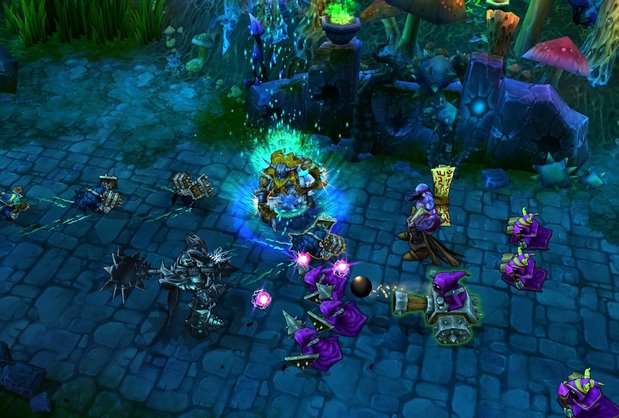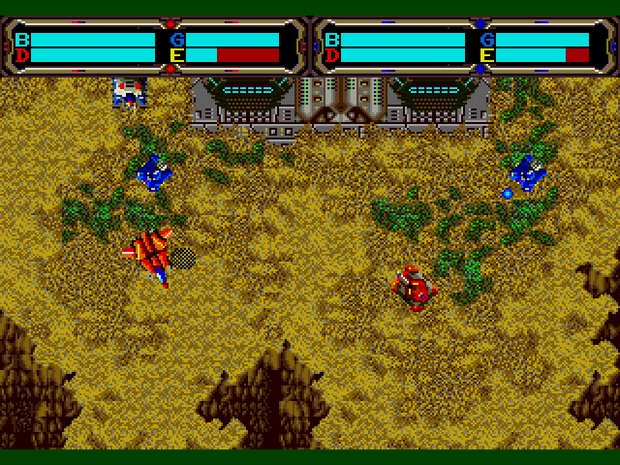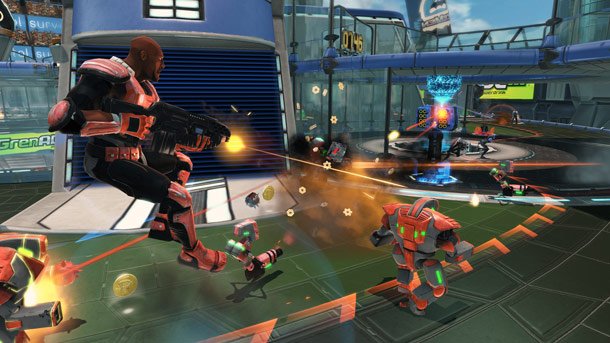Ask GR Anything: What's a MOBA?
Maybe you know, maybe you don't. We're just here to clear the air

Ask GR Anything is a weekly Q%26A column that answers questions submitted by readers (as well as questions we're particularly curious about ourselves). Got a burning question about games or the industry? Ask us in the comments below and you may just get it answered!
Video games use more than their fair share of jargon. These days, it wouldn't be ridiculous to hear something described as an “F2PMMOFPSMOBA DOTA-clone.” So we're going to try to hack through some of the jargon and explain a wee bit of it.

This week's question comes from Ask GR Anything's biggest fan: Hollander Cooper, one of GamesRadar's esteemed editors! See, Hollander writes about MOBAs quite a bit, and he's tired of the questions, and trying to explain it every single time. So we've got his back. Let this explanation be carved into stone for all current and future generations of GamesRadarians to see.
The briefest explanation possible is: League of Legends is a MOBA. But there's a lot more to it than that. MOBA is an acronym that stands for Multiplayer Online Battle Arena. That definition alone won’t tell you much, though, since that phrase pretty much applies to any online game that isn’t an MMO.
More specifically, MOBA defines a genre in which two teams must defend their base from each other. The key feature is that each team has a stream of AI-controlled allies pouring out of their base and marching toward the enemy's base. Players control exceptionally powerful hero characters that are too weak to destroy the enemy alone, but are powerful enough to influence the flow of the battle.
The goal is to push back the enemy and lead your allies into their base to destroy it. Usually, defensive turrets of some kind act as a checkpoint (i.e. if your forces manage to destroy them, it'll be easier for future waves to get into the base.)
There are other factors that can come into play, though. For instance, in League of Legends and many other MOBAs, players gain experience (starting from level 1 in each match) to rank up their character, and gain access to new spells, abilities, and buffs. You can rank up by either killing enemies, or completing mini-quests on certain areas of the map.
Sign up to the GamesRadar+ Newsletter
Weekly digests, tales from the communities you love, and more
You're also constantly gaining a small amount of gold which can be spent on items that, again, buff your character in variable ways.
The MOBA genre is sometimes falsely said to have started with its most popular incarnation, Defense of the Ancients or DOTA. However, that's not exactly true. The first true MOBA was a mod for the original StarCraft called Aeon of Strife. DOTA was a Warcraft III mod based off of Aeon of Strife.
There are other games that arguably preceded the genre, though. Herzog Zwei, for instance, used some of the same formula back in 1989. In Herzog Zwei, you controlled a flying jet/mech that commanded units in an action-RTS-style game. Battle Engine Aquila featured a similar focus on a much larger (and three-dimensional) scale as you influenced the tide of a battle with hundreds of units.

More recently, a flurry of new games have joined the once-niche/now-exploding MOBA genre. Valve and Blizzard both have games coming, along with other efforts like Rise of the Immortals, Realm of the Titans, and (my personal favorite) Super Monday Night Combat.

With so many amazing games coming up in the genre, we're sure that one day, MOBA will be as silly to have to explain as FPS or MMO. Hopefully this has been educational for any gamers on the site who weren't ballin' around the turn of the century, and we doubly hope we've managed to save Hollander some energy from having to explain this concept in article after article after article.
Be sure to drop your questions in the comments as we're looking for ideas for next week. If we missed your question in weeks past, please feel free to resubmit and we might be able to pick it up this time. Except you Pokeball people. We hear you loud and clear, and we'll let you know when we figure out how Pokeballs work.
Submit your own questions in the comments (or Tweet them to @sciencegroen) and we may tackle them in a future Ask GR Anything.


